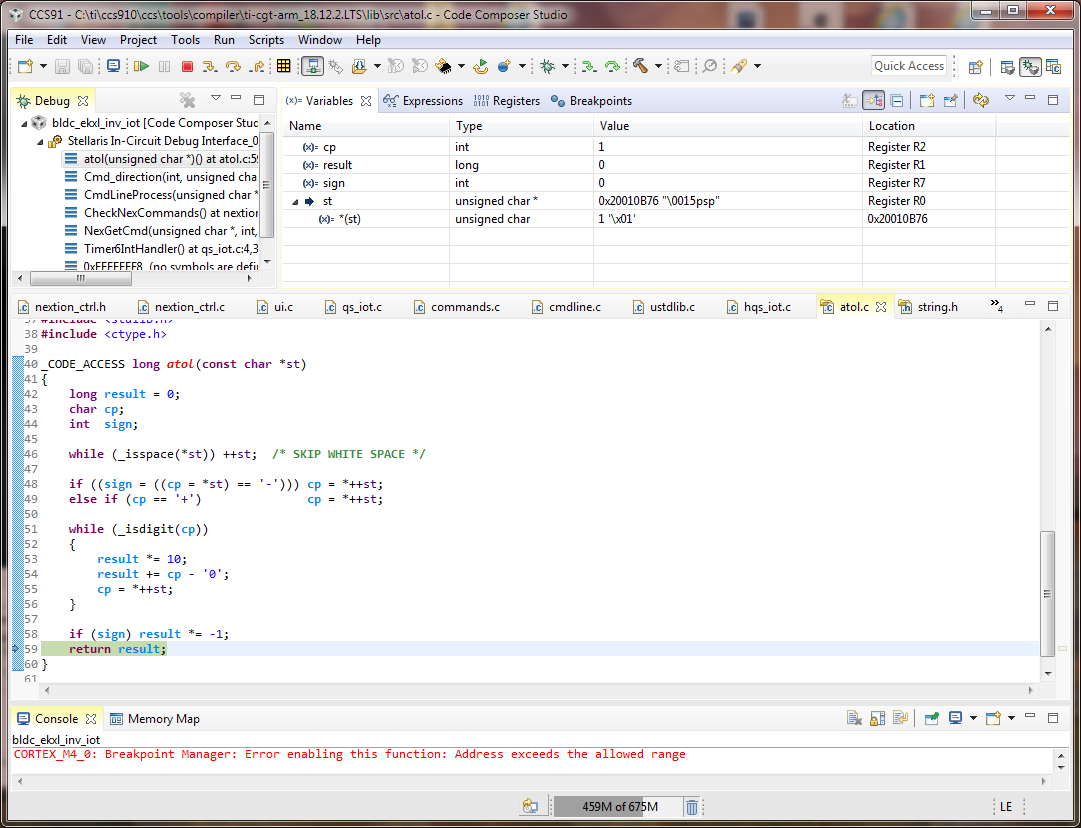Tool/software: TI C/C++ Compiler
Why is atol.c not returning an integer 1 for decimal 1, always returned as 0?
Other oddity being return argument value of the call header is always the cell number of the array[6] being loaded in the command. The returned argument in the function header does not contain the trailing Boolean switch following directly behind the matched command in cell 6 so we must pluck it out inside the function as shown below. The Boolean switch is changing from 0 to 1 as CCS debug confirms but atol() returns any decimal 1 as integer 0. I don't see atol() do that in another command where more than 1 digit follows a command. The atol function has not been updated since 1993.


